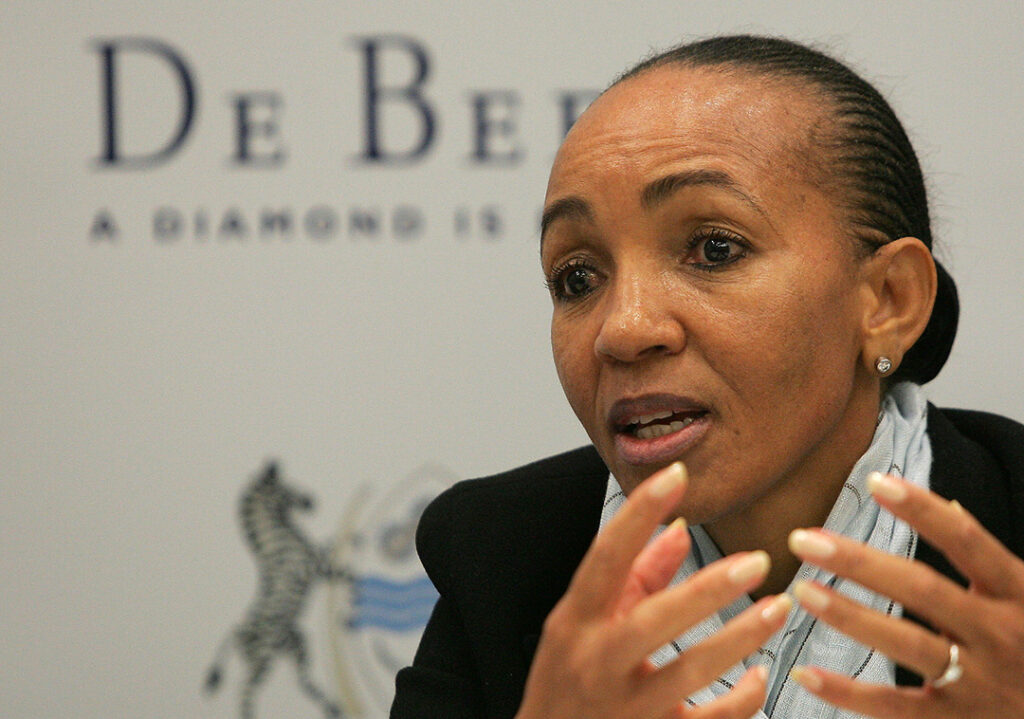Social exclusion is one of the known drivers of conflict, sometimes leading to violence and wars when certain groups of people are denied access to their society’s resources, institutions, and opportunities. The Just Energy Transition (JET), the proposed transitional pathway from fossil fuels, is a vision for a low-carbon future, perceived in some sectors as an opportunity for communities to benefit from their mining resources, gain access to sustainable energy options while aiding in meeting the targets of the fast approaching window of the Paris Agreement. Communities are key stakeholders in the implementation of energy and climate policies hence community participation is critical.
On the just energy transition, Sheila Khama, the former Chief Executive Officer of De Beers Botswana, cautioned during a recent Chatham House discussion on climate-sensitive mining that: “It is important for governments to embark on a much broader public education to create an understanding of the issues … because I frankly do not see how in Africa we transit to clean energy in the absence of infrastructure, in the absence of energy itself … but also in the absence of people understanding, because a huge part of what we would be doing is essentially disrupting people’s livelihoods and I don’t know that we will succeed unless we have a critical mass of public support for some of the policies …”

Governments and mining investors, therefore, have an obligation to engage in socially just and inclusive, broad-based consultative processes, not only as an obligation of the social compact but to entrench the much-needed trust for mutually beneficial relationships. Trust in governance and institutions can serve to unlock communities’ potential and participation, unite people around common goals and improve their welfare beyond economic growth and job creation. Communities who have traditionally been excluded from the formal economy, and often bear the brunt of climate change impacts, desire and deserve transitions that are people-centred.
As the International Energy Agency (IEA) has highlighted, “The purpose of the transformation of the energy sector is to improve lives and livelihoods…enabling citizens to seize the opportunities and navigate the disruptions caused by the shift to clean energy technologies. It means eradicating energy poverty: no system is sustainable if it continues to exclude large parts of the global population from access to modern energy. And it means putting considerations of employment, equity, inclusion, affordability, access and sustainable economic development at the centre of the process.”
The transition is about people and their impact on their lived realities. It is this impact that African governments should continue to table at the 28th UN Climate Change Conference(COP 28) to push a people-centred, inclusive growth-driven agenda.
The 2023 Alternative Mining Indaba (AMI) theme, ‘A just energy transition: Unlocking Community Potential and Participation’, highlights the importance of communities. The AMI, which runs on the sidelines of the annual Mining Indaba’s business interests premised on extraction and profit, is a constant reminder to African governments and mining corporations that the continent’s vast energy resources must contribute to its sustainable development and promote inclusive growth for its citizens – a reminder to high-level stakeholders of their often-neglected mandate.
Yet this mandate is clear and well-articulated in the Africa Mining Vision (AMV) adopted by heads of state at the February 2009 African Union summit. It is Africa’s own response to combating the resource curse; the all too familiar African “paradox of great mineral wealth existing side by side with pervasive poverty”. The mining vision charts a holistic pathway for mining on the continent, and calls for “transparent, equitable and optimal exploitation of mineral resources to underpin broad-based sustainable growth and socioeconomic development”. If effectively implemented, the vision has the potential to set the continent’s economies on the path to recovery.
Regrettably, this has yet to be fully realised given the prevailing energy deficit. Intermittent supplies in South Africa by state utility Eskom and the Zimbabwe Electricity Transmission and Distribution Company (ZETDC) in that country are two of numerous examples of how the energy crisis is crippling Africa’s economies.
The marginalised and vulnerable are among the hardest hit, particularly in rural areas where most fall outside the national grid and who largely rely on biomass. The World Health Organization notes that “household air pollution was responsible for an estimated 3.2 million deaths per year in 2020, including more than 237,000 deaths of children under the age of five. The search for energy sources is a burden that often disproportionately falls on women and girls.”
Energy is indispensable to human development and universal access to affordable, reliable, sustainable and modern energy for all (UN SDG 7) is central to the realisation of all the other sustainable development goals. Although the continent is still heavily dependent on fossil fuels, being home to at least 30% of the strategic minerals key to the energy transition has placed it favourably on the world stage, with the opportunity to leverage this. However, this can only be realised by taking into account the diverse energy needs across the continent and within the nations themselves.
But what will this entail in practice? How can community potential and participation be unlocked within a continent increasingly authoritarian, characterised by unresponsive governments and corporations that have disregarded laws and regulations in pursuit of profits, sometimes in collusion with the military? In October 2011, a Guardian newspaper report on Shell’s operations in the Niger Delta made reference to court documents revealing that: “In the 1990s, Shell routinely worked with Nigeria’s military and mobile police to suppress resistance to its oil activities, often from activists in Ogoniland, in the delta region. Confidential memos, faxes, witness statements and other documents, released in 2009, show the company regularly paid the military to stop the peaceful protest movement against the pollution, even helping to plan raids on villages suspected of opposing the company.”
The Benchmarks Foundation, a South African global corporate responsibility advocacy organisation, participating at AMI 2023 in February this year, also asked pertinent questions about community participation: “How do we unlock the potential to participate? Participate towards what end? Can there be real participation amongst unequals or where asymmetries of power exist? How do we boost the power of the oppressed and marginalised? Can we participate and unlock potential with the master’s tools and thinking?”
These questions confirm the complexities involved in a just energy transition but, importantly, also give direction to measures that governments, business, and other mining stakeholders may adopt to take more deliberate steps aimed at unlocking community potential and participation. A just transition is about relationships and broad-based community consultation processes that seek to understand the differential impact of mining on all, including miners, women, youth, children – and their environment – and how this can be addressed. Unlocking community potential and participation is largely a grassroots process that will require building on existing community engagement and development structures that bring people together beyond partisan lines towards shared, common goals. Given the exclusionary and exploitative history of mining in Africa, unlocking community potential is essentially a process of rebuilding trust.
There are also best practices to draw from countries that have successfully implemented transitions and to learn from them and adapt them to each context. African leaders can also leverage the so-called green minerals rush to set their own priorities, negotiate fair contracts, review agreements and apply existing legislation to legally binding documents that expand space for citizens’ voices and to recourse where these are violated. Justice, equity and inclusivity are therefore key in fostering citizen trust which will, in turn, unlock community potential and participation.
Globally, African governments should continue to engage, placing Africa’s priorities top of the agenda as they attempt to unlock the much-needed commitments and financial resources. Locally, community-wide awareness-raising campaigns must be backed by effective, socially just legislation to foster citizens’ trust in how their natural resources are governed.

Sikhululekile Mashingaidze entered into the governance field while she was a part-time enumerator for Mass Public Opinion Institute’s diversity of research projects during her undergraduate years. She has worked with Habakkuk Trust, Centre for Conflict Resolution (CCR-Kenya), Mercy Corps Zimbabwe and Action Aid International Zimbabwe, respectively. This has, over the years, enriched her grassroots and national-level governance projects’ implementation and management experience. Her academic research interests are in the field of genocide studies, driven by her commitment to deepening her understanding of girls' and women’s experiences and their agency in reconstituting everyday life, and their inclusion in peace-building and transitional justice processes. Socially, she has a keen commitment to supporting girls' education, women’s economic empowerment and the fulfilment of their equitable and sustainable development in Africa’s underserved, often hard-to-reach communities. She enjoys writing and telling the stories of navigating everyday life.


